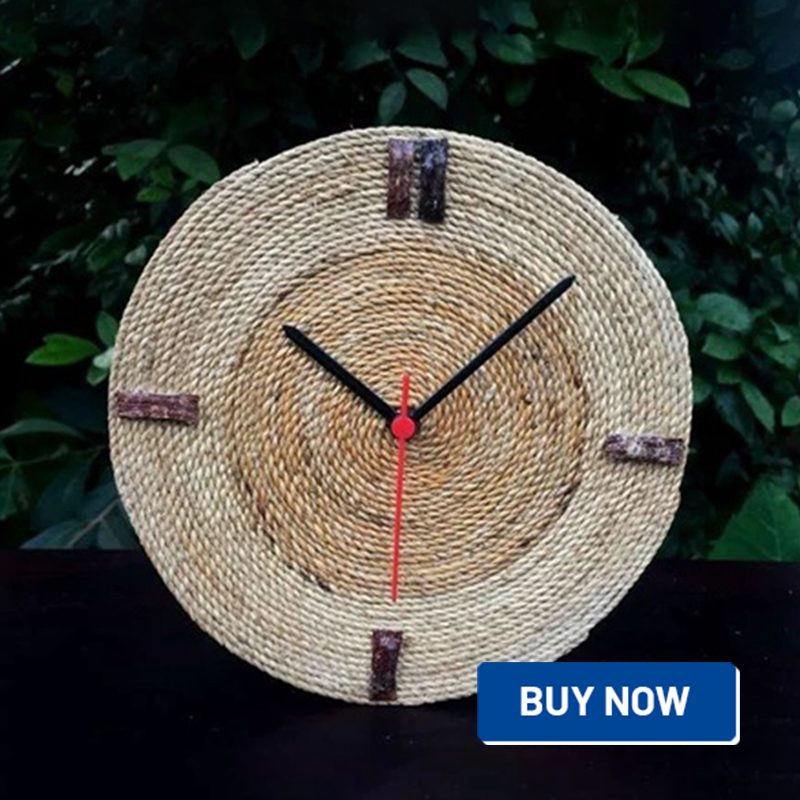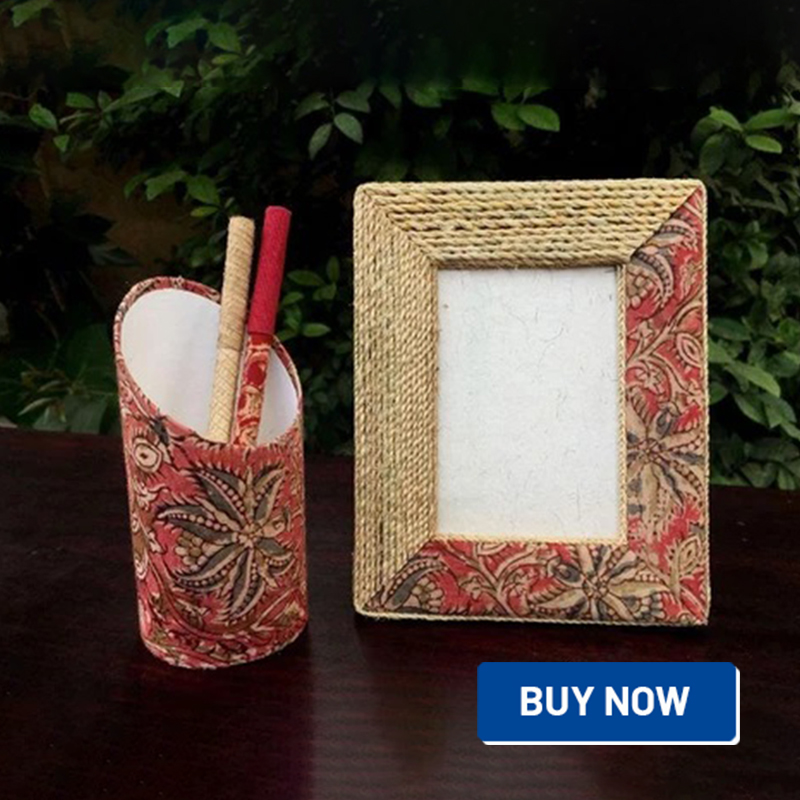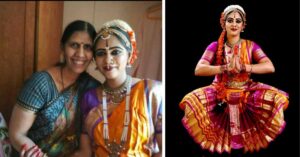This Couple’s Banana Fibre Products Will Make You Proud For a Very Special Reason
At a time when there is a lack of empathy and facilities for people with disabilities, two mental health professionals are changing the game!
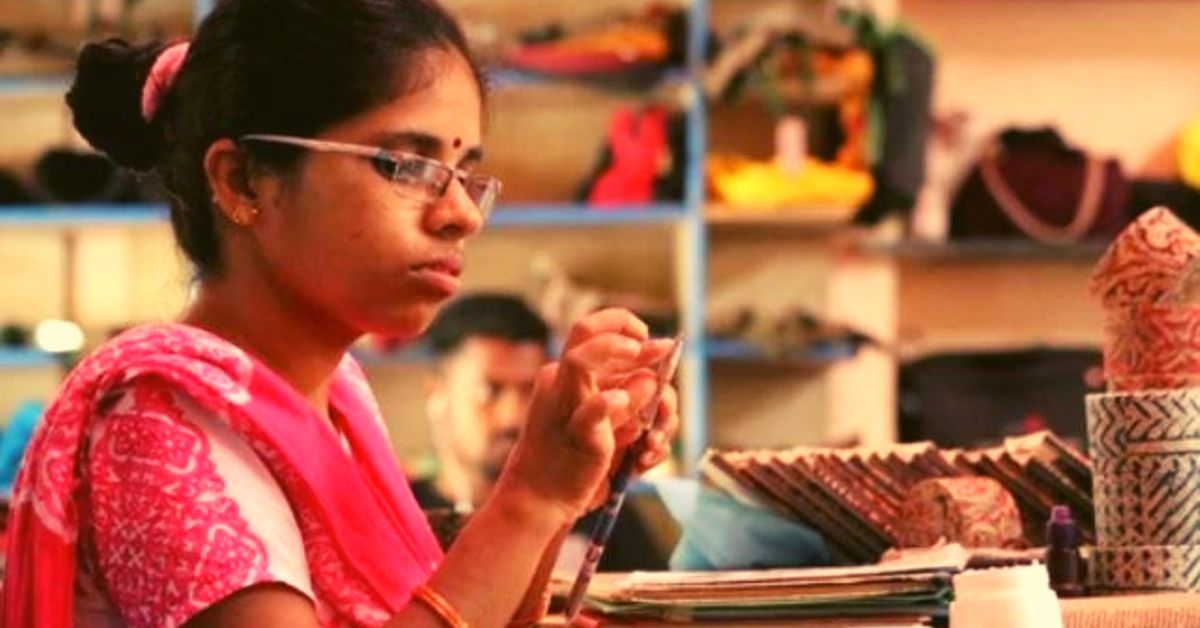
When clinical psychologist, Mala Giridhar and her husband, Dr Giridhar, a psychiatrist, decided to address the stigma associated with people with disabilities, little did they know that one day their efforts would empower the people they wanted to help both financially and emotionally. The husband-wife duo runs an NGO that engages people with diabilities to make items like pens and folders from newspapers and clocks, lamps, bags, purses boxes and photo frames using banana fibres.
“Every community has 5-10 per cent of the population of people with disabilities and the way small towns usually handle them is very unfortunate. There is a lack of empathy, infrastructure, facilities and love for them. These problems often hamper their growth and life. We wanted to engage them in an activity that would help them focus and be less of a burden on their families,” Mala tells The Better India.
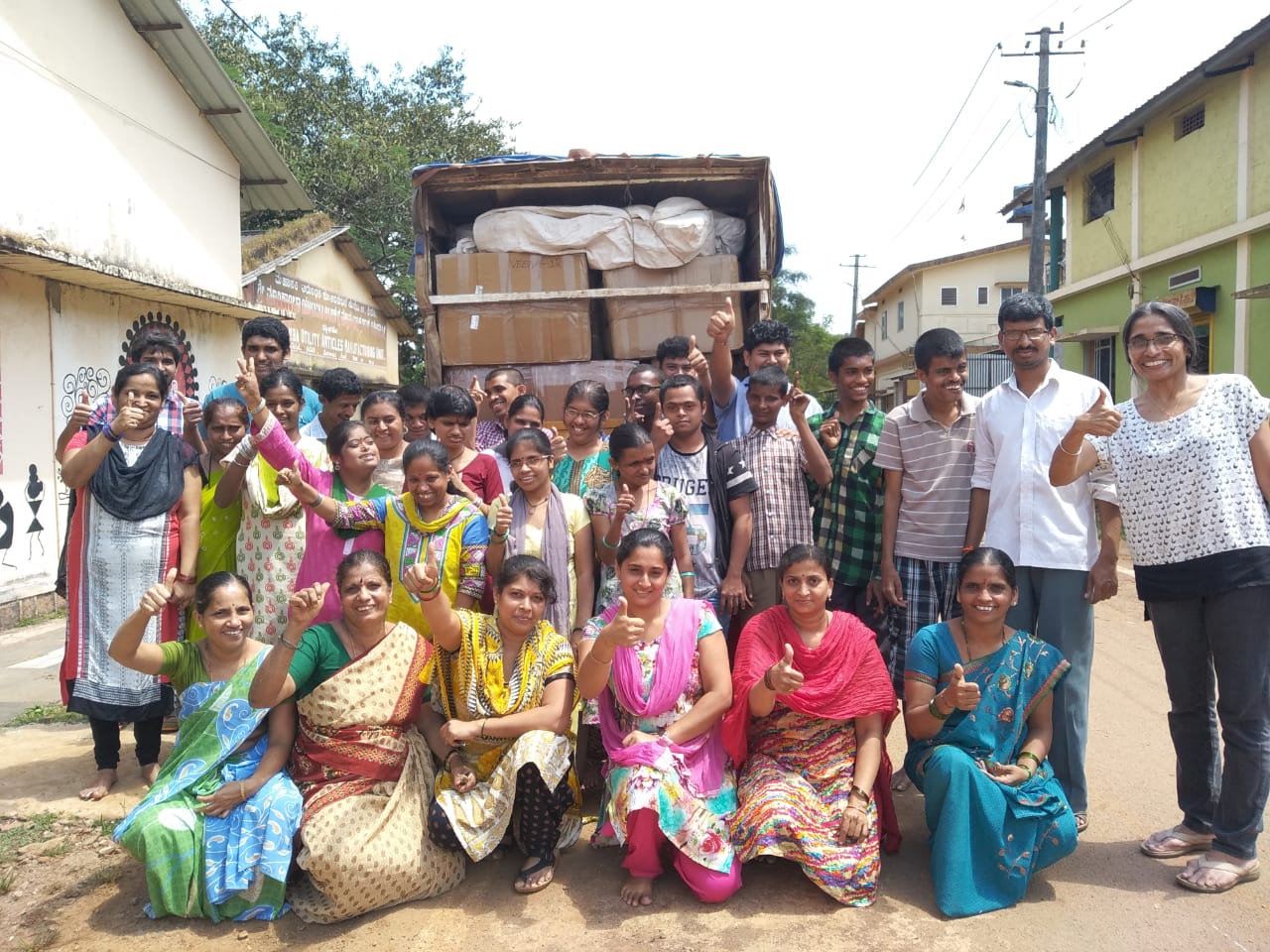
In 2007, the couple from Sirsi, Karnataka, started their NGO—Prashanti, and engaged five people with intellectual disabilities in the premises of their clinic. The five people spent time making packets from newspapers to hand out medicines in. The positive response received from their parents encouraged the couple to scale up the initiative and explore options where the activity would fetch the volunteers money as well.
With help from the trustees, well-wishers and donors, the NGO moved to a new place and flagged off its initiative—‘Chetana Occupational and Rehabilitation Centre’. The centre now supports 30 people, in the age-group of 18 and 40 from the Sirsi taluka and surrounding villages, living with conditions like autism, hearing and/or visual impairment, who create products out of sustainable material like banana fibres.
Our aim was not to let them sit at home without any purpose as it affects the person socially, psychologically and physically. Observing them and seeing the outcome, we started paying them minimal amounts to that they are encouraged to come regularly. We came up with a business plan to support more individuals with special needs, says Mala.
The reason behind making sustainable products, says Mala, was simple, “Anything we consume should ideally be eco-friendly. From the very beginning, we were sure that our work atmosphere should not harm the environment in any way.”

The NGO also looped in local women who either volunteer or are on a payroll, to impart training to individuals with disabilities. Besides, teaching the product-making process, they also lend support in the overall learning and development of the recruits involved in the production process.
“It requires a lot of patience and hard work to train them. These women, with minimal education, are running the business smoothly. Their commitment to this cause is much bigger than their meagre salaries. We have tried to foster their growth by facilitating exposure trips, participation in different workshops, exhibitions and programmes,” informs Mala.
The employees with disabilities work from 10.30 AM to 5 PM, and the NGO rents two vehicles for pick and drop service from their houses to the centre. The NGO also provides nutritious meals to both trainers and trainees.
All members have a bank account where they receive their monthly stipends that range from Rs 500 to Rs 7,000.
Today, after a decade, people have started understanding and respecting the work done by Prashanti. Many have even acknowledged that it is possible to bring in people with disabilities into mainstream service sectors.
“The local community has extended us unconditional support and has helped us sustain the project. Besides financial help, they also help us in procuring raw materials like newspapers and banana fibre. People from the community also spend some time at the centre and it has helped us shape up as a positive, happy place,” say the Trustees.

To market their products, the NGO has collaborated with Bengaluru-based Masmara that brings rural crafts to a global audience through exhibitions. They support the artisans during the product development, design stages and marketing.
“When we came in contact with Chetana, we were really impressed by their skills but the money they were getting for their work was less. We are helping them become self-sufficient by addressing issues of pricing, market exposure and presentation of the products,” Veena Hegde, the founder of Masmara tells TBI.
One of the most memorable moments of the NGO was when a tempo carrying the Chetana products began its journey to Bengaluru, “For us, it was a great joy to witness that we had made so many products that no empty was space left inside the tempo.”
Prashanti is now working toward developing a short-stay residential facility for those who lose their family members or are not being supported by their family.

Prashanti believes that there is a dire need to establish centres like Chetana across India, especially in smaller towns, to get rid of the stigma associated with people living with disabilities and help them lead a dignified life.
Handmade, eco-friendly and long-lasting. Check out the beautiful products made with banana fibre by Chetana volunteers.
(Edited by Saiqua Sultan)
Like this story? Or have something to share?
Write to us: [email protected]
Connect with us on Facebook and Twitter.
If you found our stories insightful, informative, or even just enjoyable, we invite you to consider making a voluntary payment to support the work we do at The Better India. Your contribution helps us continue producing quality content that educates, inspires, and drives positive change.
Choose one of the payment options below for your contribution-
By paying for the stories you value, you directly contribute to sustaining our efforts focused on making a difference in the world. Together, let's ensure that impactful stories continue to be told and shared, enriching lives and communities alike.
Thank you for your support. Here are some frequently asked questions you might find helpful to know why you are contributing?


This story made me
-
97
-
121
-
89
-
167



